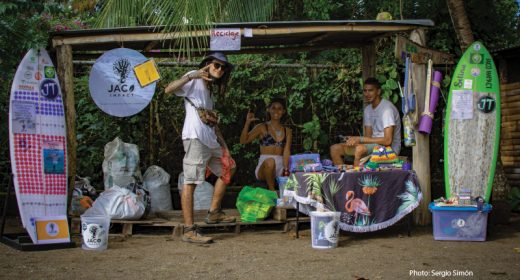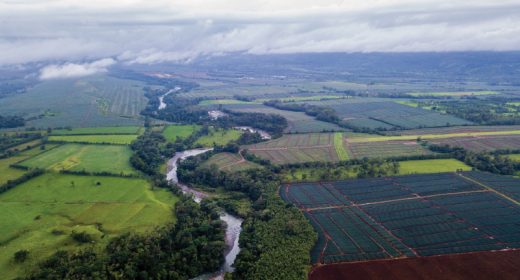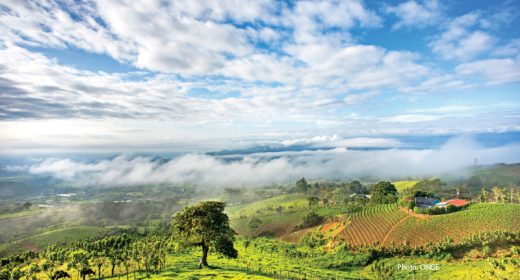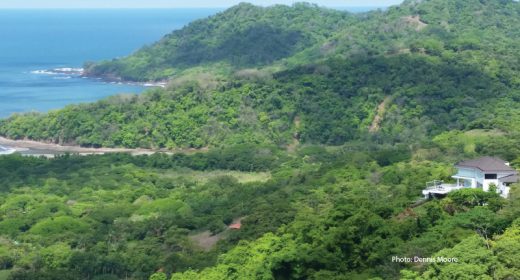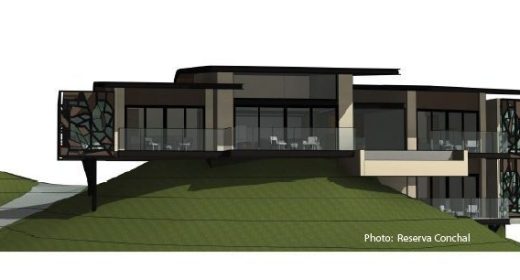
Ring in the New
- DEC 28, 2016Warning: count(): Parameter must be an array or an object that implements Countable in /home/howlermag/public_html/old/wp-content/themes/new-paper/includes/general.php on line 193
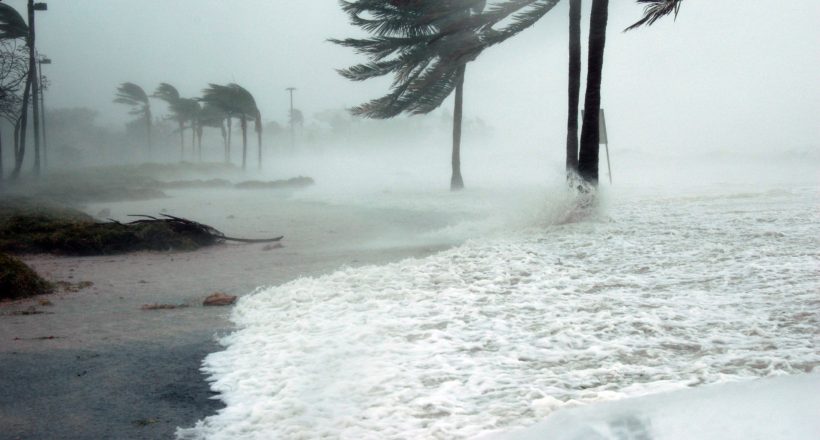
Your Lead Paragrpah goes here
You don’t need a weatherman to know which way the wind blows. Bob Dylan
Taking a gander at recent history seems like a lot of folks are wishing they had a direct line to Nostradamus. From this perch in the tropical forest, kinda’ seems like things have gone a bit topsy-turvy since the events of November. Not the elections, silly, I’m talking about the weather here in Guanacaste.
I mean really, sometimes the forces of Nature can just be so, well, inconsiderate. As it turned out, the first hurricane to enter Costa Rican territory, Otto, just happened to make landfall with Category Two winds, about mid-day on my very own birthday. I spent the day battening down the hatches, putting cinder blocks on flapping pieces of galvanized roofing and cutting down a tree or two that looked capable of slicing my house down the middle like an oversized birthday cake. Not exactly what I had in mind for my special day.
Judiciously following the regular updates out of the National Hurricane Center website, I was preparing for the tropical storm force winds that were forecast to extend 60-80 miles out from the eye of the beast. Not to mention the possibility of isolated downpours delivering a month’s worth of rain in a question of minutes. With one eye on the updates from the NHC and another on every breath of wind or strange looking cloud, I received an urgent message from a friend in San Jose. Just after noon, Mario, an engineer with ICE and not the sort to fly off the handle easily, forwarded the news of a 7.2 earthquake off the coast of El Salvador, and a sort of ‘pre-alert’ for a tsunami. I mean sometimes, you just can’t make this stuff up. In my case at least, there’s a reason why I have a prescription for Xanax. You hear something like that, like hello, which of your friends living on the beach do you call first? When the tsunami alert got rescinded an hour or so later, I went back to waiting for the first signs of Otto to appear on the northeastern horizon.
It got me to thinking just how many times since the last weeks of October, during any sunny day with steady breezes off the land, I’d heard neighbors or friends say, “this is it, summer, no more rain.” Not all of them, mind you. Evido, my local meat and corn supplier actually planted a fast maturing hybrid corn in the month of October, in spite of everyone telling him he was ‘loco’. “You watch,” he said, “it is going to rain ‘bastante’ into December.” In addition to Evido, I was receiving somewhat more professional advice.
Almost a year ago, at a conference on the 3-year drought here in Guanacaste, hosted at the UNA in Nicoya, I had the good fortune to meet Irina Katchan, a meteorologist with more than 30 years experience here in Costa Rica. Almost a month before hurricane Otto stormed across the country, she told me that ‘something’ was brewing in the Caribbean, the likes of which she’d never seen this time of year. For a couple of weeks, the NHC (National Hurricane Center) called it a broad area of low pressure with 50% chance of ‘organization’ over a 5-day period. At first it was supposed to track towards the northeast. As it turns out, Otto, once he got himself organized, apparently had other plans.
Mollified somewhat by his lackluster showing in my particular neck of the woods, I ventured out for a birthday beer and a sumptuous plate of Thanksgiving turkey at Garret and Marcela’s nearby restaurant. Not until the early hours did the reports start coming in of the devastation visited upon a number of cantons and municipalities that had apparently failed to heed the warnings issued by the central government earlier in the week, and by disaster management experts years before.
The incredible outpouring of support: donated food, clothing and mattresses from all over the country, while noble and admirable in itself, is no substitute for a healthy dose of several ounces of prevention. The government can warn, the agencies and experts can advise and recommend, but the municipalities and local authorities have to act. In the case of Uppala, the city had been advised to cease issuing building permits in the areas deemed to be vulnerable and to implement relocation of homes and businesses out of the danger zones. At the risk of delineating the obvious, evacuation plans and even drills fall into the realm of local responsibility.
The post mortem analysis and commentary on events in Uppala would appear to indicate that the local government didn’t want to upset the economic apple cart by refusing building permits nor ruffle anybody’s feathers by relocating the town to higher, albeit safer areas. Any similarity to the municipality of Santa Cruz refusing to heed recommendations to halt the issuance of building permits in areas with depleted aquifers is pure coincidence.
The take home message here is that the weatherman might well be able to help you know what’s coming your way. But when push comes to shove, you either want solid, responsible local organizations including the government and private sector, or a clear path to the emergency exit.
Tom Peifer is an ecological land use consultant with 20 years experience in Guanacaste. 2658-8018. tompeiferecv@gmail.com El Centro Verde is dedicated to researching and promoting sustainable land use, permaculture and environmentally sound development http://www.elcentroverde.org/




